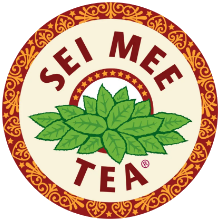Green Tea and Bone Health
We know bones are important: providing structure, protecting organs, anchoring muscles and storing calcium. Recent studies are revealing bones play many more roles for your health. Bones are not mere “white hard sticks” but they send and receive significant messages to and from other organs to maintain youth and health.
Bone is an active player for our health
Statistics show one out of 4 to 5 of the elderly who fractured their hip lost their lives within one year.1 Modern science has found weakened bones and immobility reduce bone hormones, which affect the health of various organs, such as brain, liver, pancreas, kidney, etc. Researchers around the world are discovering fascinating facts that bones send signals to strengthen the immune system, memory, and muscles. Weakened bones emit fewer signals and may even cause health problems, such as diabetes and arteriosclerosis. For example, Dr. Gerard Karsenty of Columbia University reported the bone hormone called Osteocalcin, a protein hormone found in bone, improves ability of muscles2 and reduces age related memory loss.3 Dr. Hartmut Geiger, University of Ulm, Germany, reported Osteopontin, another messenger substance released from bone, makes stem cells begin to produce more white blood cells, effectively reverting blood to a youthful state with stronger immunity.4
How to keep bones healthy
Although bone may appear superficially as a static tissue, it is constantly undergoing a remodeling process. Osteoclasts releases minerals into our blood by breaking bone cells down. Osteoblasts repair and form bone tissues.
Exercise & Nutrition:
Dr. Pamela Hinton, the University of Missouri, investigates the interactive effects of nutrition and physical activity on bone health. Her study showed some athletic men may risk low bone density depending on the kind of exercise they do.5 She also studied the type of exercise increase and reduce risk. Over a 12-month period, Hinton studied how resistance and jump training exercises affected bone health for men ages 25 to 60. The results showed these exercises did more than just slow the rate of bone loss. The exercises decreased the level of sclerostin, a protein that slows bone growth.6 At the same time, it increased a hormone that promotes bone growth. (If you have medical problems and/or pain, yoga, stretch, and walking in water would work. Consult your medical professional before beginning exercises.) Besides getting the right kind of exercise, getting enough vitamin D and calcium also can keep bones strong.
How does Green Tea help?
“Studies have linked oxidative stress with the development of Osteoporosis, and reduced bone mineral density (BMD) in women and men aged 55 years and over. Green tea is helpful in combating oxidative stress because it contains polyphenols which fight off the free radicals that cause oxidative stress. It contains several polyphenic compounds also called tea polyphenols or catechins, which include: epigallocatechin gallate (EGCG), epicatechin gallate (ECG), epicatechin (EC), and epigallocatechin (EGC). EGCG is the most abundant of the catechins and has received the most attention from researchers. What does this have to do with your bones? Oxidative stress has been shown to inhibit osteoblast (a cell that builds bone) differentiation. Therefore, antioxidants like green tea can help mitigate bone loss by supporting osteoblast activity while suppressing osteoclast (bone-degrading cells) activity.7”8
Click here to Return to Blog Articles
Meet the Author: Kiyomi
Resources:
NCBI “Mortality following hip fracture: trends and geographical variations over the last 40 years” by Harleem S., Lutchman L., Mayahi R., Grice JE., and Parker MJ.
NCBI “Osteopontin attenuates aging-associated phenotypes of hematopoietic stem cells”
NCBI “Green Tea and Bone Metabolism”
Columbia University Irving Medical Center “This Hormone Makes Old Mice Run Like Youngsters”
Columbia University Irving Medical Center “Bone-Derived Hormone Reverses Age-Related Memory Loss in Mice”
University of Missouri “Study Shows Some Athletic Men May Risk Low Bone Density” by Pamela Hinton
University of Missouri “Weight-Bearing Exercises Promote Bone Formation in Men” by Pamela Hinton
AlgaeCal “The Bone Health Benefits of Tea” by Monica Lam-Feist BS



